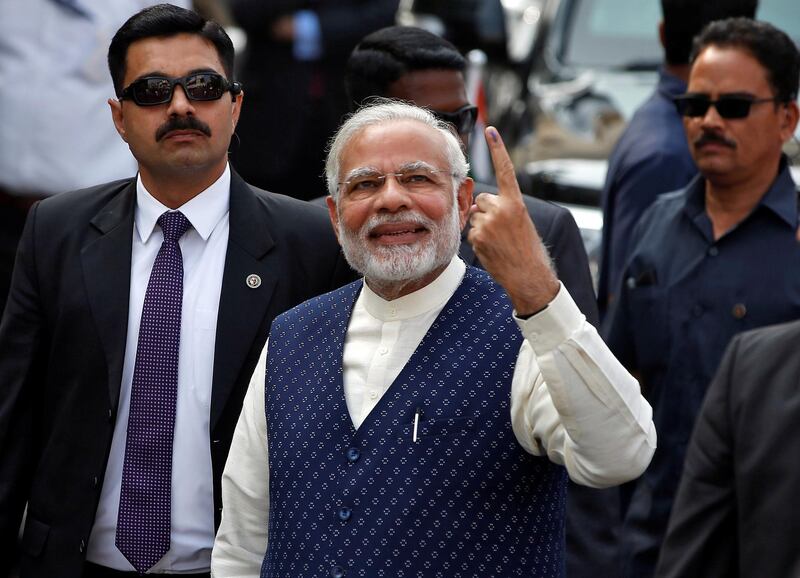Indian prime minister Narendra Modi’s party looks set to retain power in his home state of Gujarat, a result that is key to sustaining momentum ahead of national elections in early 2019.
The Bharatiya Janata Party (BJP) will win 99-146 seats in the 182-seat state legislature, according to five surveys published after voting closed on Thursday. That is higher than the 92 needed for a majority and compares with the 115 the BJP won at the previous election in 2012, when Mr Modi was still leading the state. The main opposition Congress party is projected to win 36-82 seats. The official results will be announced on Monday.
The electoral contest had become bitter over recent weeks as the Congress, led by Rahul Gandhi, tapped into vocal discontent against Mr Modi’s economic policies, causing anxiety in the financial markets.
To ensure his party's prospects, Mr Modi led from the front to campaign in the state and addressed dozens of public rallies, performed rituals and even waved from a sea plane on the last day of his campaign trail.
On Thursday, he cast his ballot in Gujarat's Ahmedabad city and then hit the streets again, showing off his inked finger as he walked, surrounded by hundreds of supporters.
A win would help him dismiss critics who said the BJP's support base was eroding after last year's shock move to ban high-value currency notes in the fight against graft, and poor implementation of a national sales tax this year hit businesses. It would also embolden the party to continue overhauling business and economic policies through like-minded administrations at the state level.
"It will be a sigh of relief for the markets," said Tirthankar Patnaik, Mumbai-based chief strategist at Mizuho Bank. If the official results Monday show about 110-115 for the BJP it will be considered "business as usual", he said, but if they "get a figure much to the north of 120, then we’re talking of different things, we’re looking at a very positive surprise to the markets".
Gujarat has long been a bastion of BJP support. The party has held Gujarat for two decades with Mr Modi at the helm for about 12 of those years, developing a reputation as a capable administrator. He campaigned for national office in 2014 largely on his record in Gujarat, promising to bring similar economic development to the rest of India.
The BJP will also wrest control of the small Himalayan state of Himachal Pradesh from the Congress, most polls predict. Doing so would extend the BJP’s hold to 19 of India’s 29 states.
However, exit polls in India have not always been correct. Most recently, the surveys were indecisive for the state of Uttar Pradesh that Mr Modi’s party ended up sweeping. They were also split on Bihar, which the BJP lost.
"If the exit polls are accurate - and let me emphasise ‘if’ - they confirm what we already know: it is very difficult to defeat Modi on his home turf," said Milan Vaishnav, senior fellow at the Carnegie Endowment for International Peace in Washington. Given that Mr Modi’s administration is focused on turning around India’s investment cycle amid as many as eight state elections next year, the Gujarat result will not "move the needle too far in any direction", he said.





